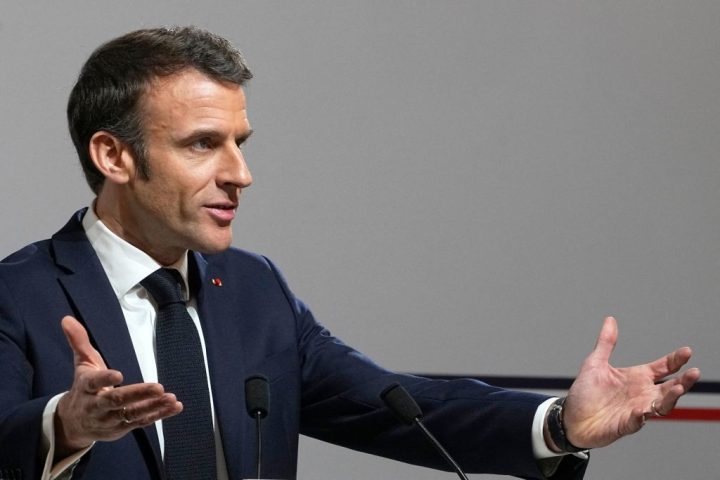Is Emmanuel Macron reaching his Liz Truss moment when financial markets finally determine his future? On 20 March Moody’s ratings agency strode into France’s explosive pensions reform turmoil. While keeping France’s rating at Aa2 ‘stable’ it nevertheless warned that President Macron’s constitutional sleight of hand denying the National Assembly a vote on the bill risked undermining future macro-economic reforms for the four remaining years of his mandate.
Two days later, citing political tension and social unrest, Fitch Ratings warned that the government’s ability to reduce high public debt will be constrained. Uncertainty surrounding the debt trajectory is reflected in the negative outlook on France’s ‘AA’ rating. Fitch warned that an increase in government indebtedness could lead to a ratings downgrade. Meanwhile Brussels – which first suggested that France needed to reform its over-generous pension system – will be getting cold feet that the EU’s second largest economy could be forced into recession by nation-wide strikes and social unrest dragging down the EU economy as a whole.
It would be ironic that Macron should be forced to take orders from the financial markets and back down
A further sign of Macron’s financial vulnerability was evidenced on 10 March in the highly respected national Court of Accounts’ latest report. In a stinging critique of France’s public finances it stated that in 2023 they would remain ‘amongst the most degraded in the Eurozone’ and far from the objectives set by the EU. According to the court, the government’s own accounts do not expect national debt, at over 111 per cent GDP, to have fallen by 2027, while its 5 per cent budget deficit is only expected to hit the EU’s target of 3 per cent GDP two years after the other Eurozone economies.
France is on the brink of officially passing the €3 trillion (£2.7 trillion) debt threshold. Interest on that debt is now its second largest budget line after education and is rising sharply as the BCE puts up rates. The spreads on France’s 10 year government bonds versus Germany’s have widened over the last month. Of particular concern is that so much more of France’s debt is reliant on the ‘kindness of strangers’ than, for instance, Italy’s.
On 17 March, Le Monde newspaper stated that ‘in recent weeks, while monitoring the state of public opinion, Macron has been discreetly consulting market economists, to keep an eye on investors capable of tipping a country into chaos even faster than the demonstrators’. The former investment banker is, in this at least, more prudent than was Britain’s short-lived prime minister. It is Macron himself who raised the spectre of financial turmoil, while inverting it, to warn the French that if his pensions bill did not pass then the markets would be spooked. The chief economist at Allianz, consulted by Le Monde, accused the president of waving a red rag at a bull, and warned that creditors would be more concerned if he had, for instance, tried to dissolve the National Assembly.
France’s CNPF employer organisation decided to break its silence on the pensions crisis this week. They cautioned the executive about attempting to get through labour reform in the future without first fully involving employers and trades unions in negotiations well before proceeding to parliament. But Macron has burnt his bridges with the six official and united trade unions and most importantly of all with the biggest and most moderate and Macronist union, the CFDT, all but insulting its leader in Wednesday’s television address.
While a minority agree that French pension reform is necessary given French finances, a very large majority of parties, people and unions believe Macron has handled the episode extremely badly, recalling the criticism made of the Truss reforms. Macron is adamant he will not back down, no matter the degree of social unrest. He was unapologetic about police tactics – totalling a thousand arrests thus far – warning an aghast French television audience on Wednesday that French social unrest could not be allowed to descend into the likes of the march on the American Capitol. Insisting that he will neither revoke the law, dissolve the chamber, call a referendum or even reshuffle the cabinet, Macron has nailed his colours to the mast.
What happens next? Nine separate days of national demonstrations of over a million people, seven consecutive days and nights of street unrest across France, oil refineries and ports blocked, widespread public transport disruption… It would be ironic that the former whizz kid investment banker Macron should be forced to take orders from the financial markets and back down.







Comments